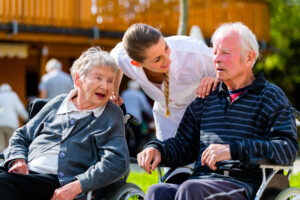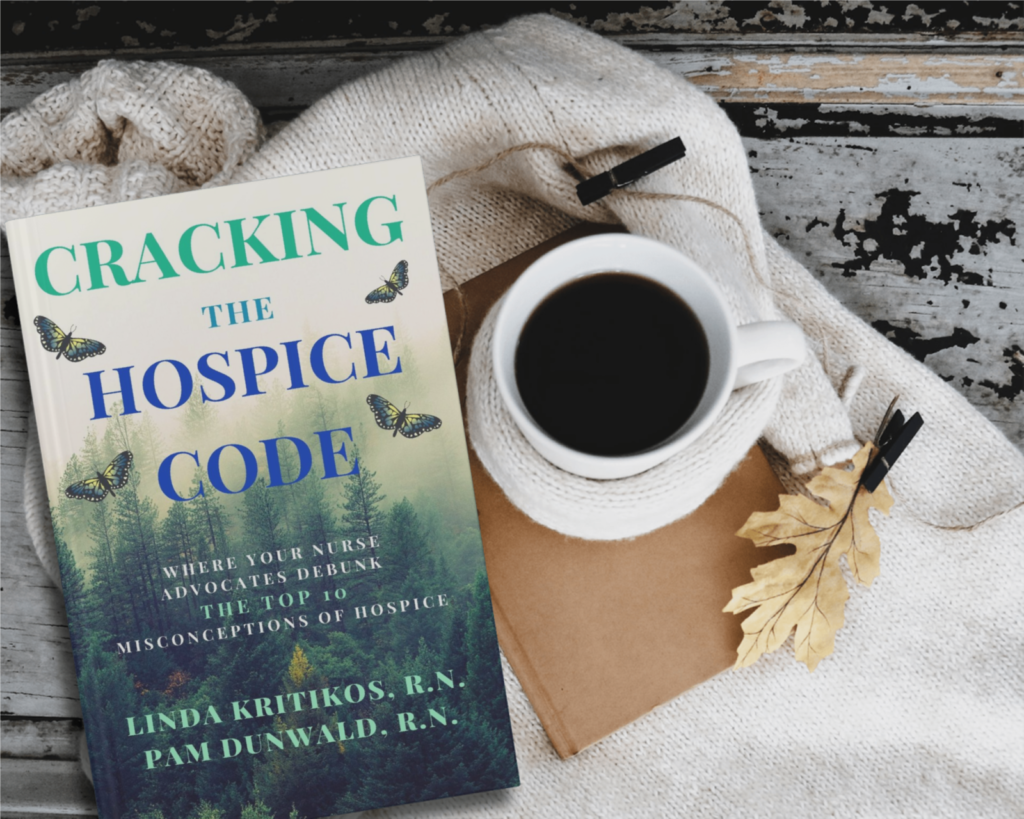Compassionate, Practical Advice for Caregivers of loved ones with Dementia. Caring for someone with dementia is a journey that requires patience, flexibility, and a lot of heart. Memory loss, personality changes, and communication challenges can make daily life unpredictable—not just for your loved one, but for you and your family as well. Here are 10 nurse-approved tips to help you support your loved one with understanding, resilience, and hope. 1. Learn About Dementia & Its Stages Knowledge is power. Understanding the type and stage of dementia your loved one has will help you anticipate changes and plan ahead. Familiarize yourself with common symptoms like memory loss, confusion, difficulty with language, and changes in mood or behavior. Resource: Alzheimer’s Association: Types of Dementia. 2. Communicate with Patience and Simplicity Speak slowly and use clear, simple sentences. Give one instruction at a time. Maintain eye contact and offer reassurance with your tone and body language. If your loved one becomes frustrated, take a break and try again later. When a loved one with dementia says something that isn’t accurate, it’s usually best not to correct them directly. While it can feel natural to want to set the record straight, correcting can sometimes...
Continue Reading >Prevent Medication Mistakes Post-Hospital: 3 Vital Tips
Transitions in healthcare—like coming home from the hospital or moving to a rehab facility—are some of the most vulnerable moments for our aging loved ones. One of the biggest risks, medication mistakes or errors. As nurse advocates, we’ve seen firsthand how easily these mistakes can happen and how dangerous they can be. But the good news? With a little knowledge and advocacy, you can help prevent them. Why Are Medication Mistakes So Common During Transitions? When someone is discharged from the hospital or nursing home, there are often multiple people involved in their care: hospitalists, specialists, primary care providers, and pharmacists. Everyone handles a piece of the puzzle, but sometimes the pieces don’t fit together perfectly. Medication lists change, new prescriptions are added, old ones are stopped, and dosages are adjusted—sometimes even in the final hour before discharge. Communication gaps are common. Discharge summaries might not be complete, and follow-up doctors may not have the latest information. Medication lists sent to the next care setting can be outdated, leading to dangerous duplications or omissions. For older adults—especially those with complex health needs—these mistakes can have serious, even life-threatening consequences. Read on for practical, nurse-approved strategies every caregiver and family should...
Continue Reading >When Leaving Care Hurts: AMA Risks for Aging Loved Ones
A Personal Story from Pam and Her Mom’s Exit from the Nursing Home. Will it be AMA? Have you ever heard the term “Against Medical Advice” or AMA? If you’re caring for an aging loved one, it’s a phrase you might encounter—and one that can bring a lot of worry and confusion. Today, I want to share a personal story from my own family’s journey, and why understanding AMA is so important for anyone supporting an older adult through a hospital or nursing home stay. Our Story: When My Mom Left the Nursing Home AMA A few months ago, my mom was in a nursing home recovering from a serious illness. She was fiercely independent—always wanting to make her own decisions, even when her health was fragile. She was newly on continuous oxygen and needed more oxygen with any activity. She spent 9 days in the hospital and was going to rehab for strengthening. Prior to being in the hospital she was living on her own in her home. She was doing alright up until going into the hospital with breathing difficulty. I did all the things I was supposed to do. I checked Medicare Compare for nursing home rating...
Continue Reading >Understanding Guardianship: What Families Need to Know
As our loved ones age, navigating healthcare and legal decisions can become increasingly complex—especially if cognitive decline, illness, or lack of support makes independent decision-making difficult. One option families may consider is guardianship, but it’s not a step to take lightly. Here’s what you need to know about understanding guardianship, when it may be necessary, the pros and cons, and how to begin the process. What Is Guardianship? Guardianship is a legal relationship established by a court, where an appointed individual (the guardian) is given authority to make decisions on behalf of another adult (the “ward”) who is deemed unable to manage their own affairs due to incapacity. This can include decisions about healthcare, finances, living arrangements, and more. The courts can appoint a family member as guardian or a professional guardian. When Might Guardianship Be Needed? While every situation is unique, guardianship may be considered when: Pros and Cons of Guardianship Pros: Cons: Example One: In the hospital we witnessed this on occasion. I remember one case in particular. A large family was concerned over their parent’s health concerns. Following a stroke, the patient was no longer able to make their own healthcare decisions. No advance directives or healthcare...
Continue Reading >5 Neighborhood Features That Support Healthy Aging
A neighborhood can play a big role in healthy aging. Whether it is a new home in a new neighborhood or a senior housing community or apartment, where you live affects your day-to-day life as you grow older. The right environment keeps you active, connected, and safe. Below, we’ll explore 5 neighborhood features that support healthy aging, so you can recognize them in your own area or advocate for changes that can make a difference. We will mention several times about your county government office on aging. This is a great place to start before a move. Contact this office when considering a move to find out what is available in the county and what resources might be available in the new area you are looking at. Do this first in planning for a potential move. There are Realtors that are certified in working with our aging adults. This may be something to ask. For more assistance consider our Free Guide and Checklist to help plan and make the move less stressful. 1. Accessible Public Transportation Getting around becomes trickier as we age. Not everyone can drive forever. Accessible public transit is a simple way for older adults to stay...
Continue Reading >Senior Healthcare Access Made Simple and Stress-Free
Getting healthcare shouldn’t be stressful for our aging loved ones, but it often is. Transportation problems, high costs, and age-unfriendly services are just a few of the challenges they face for senior healthcare access. This article will show you simple ways to tackle these barriers and help seniors get the care they need. Transportation Struggles Many seniors have trouble getting to medical appointments. They may not drive anymore, or they might live too far from a doctor’s office. These challenges can delay important care and hurt their health. What You Can Do By improving transportation, seniors can reach their appointments and get care on time. Financial Challenges Even with Medicare, healthcare can be expensive for seniors. Copays, prescriptions, and treatments add up quickly. This can make it hard for them to afford the care they need. Ways to Reduce Costs Addressing financial barriers can ease stress and make care more affordable for older adults. Age-Friendly Healthcare Not all healthcare services are senior-friendly. Busy offices or buildings without ramps can make visits frustrating. Seniors also need doctors who understand aging and their unique needs. There is a national movement to accredit healthcare systems, hospitals, clinics, etc to be Age-Friendly. To learn...
Continue Reading >Speak Up for Care: Simple Steps to Help Your Loved One
To speak up for care and ask the right questions can go a long way in getting your loved one the care they deserve. When the gap in the system gets too big. Pam recently had a personal experience advocating for her mom while she was in the hospital and then the nursing home for rehab. Advocating for a loved one in the healthcare system can sometimes feel overwhelming. Hospitals and nursing homes are often fast-paced environments, and gaps in communication or care can leave families feeling powerless. But your voice matters immensely. By asking thoughtful, targeted questions, you can help ensure your loved one receives the best care possible. We will share some practical tips and essential questions to ask to become their strongest advocate. We will also share examples to help you understand where things can go wrong. Speak Up for Care, Advocacy Does Matter Navigating the healthcare system for a loved one is no small task. Picture this: your mother has just been admitted to the hospital. She’s feeling sick and overwhelmed, and you notice the doctors and nurses seem spread thin. Some things you’re told don’t add up, and you’re worried about medication errors or missed...
Continue Reading >“Aging with Purpose: Impact Lives and Stay Connected”
Celebrating National Volunteer Month with Seniors National Volunteer Month is the perfect time to celebrate the power of giving. For seniors, aging with purpose so much more than helping others. It’s a way to find joy, meet people, and feel fulfilled. Whether you’re active or prefer staying at home, there are many ways to make a difference and share what you know. Living with purpose as you age is an important part of your realization that life does still matter. Retirement may not have been all that it is cracked up to be. After a while you may become bored with watching T.V. and living a life of leisure. Lack of thought stimulation is not good for our aging brains! Why Volunteering Matters It’s common to feel a little lost during life changes, like retiring or kids growing up. Volunteering can help fill that gap. Helping others gives you a strong sense of purpose. It also makes you feel connected and wards off loneliness. Studies have shown that staying socially active can keep your mind sharp, lower stress, and even help you stay healthier. Giving back is a wonderful way to share your talents and keep learning. No matter your...
Continue Reading >“Combat Isolation with These Powerful Connection Strategies”
Living on your own can be both exciting and fulfilling. You can enjoy your freedom, create your own routines, and pursue your passions. Still, staying connected to combat isolation from others is essential. Social connections and engaging activities can boost your mood, sharpen your mind, and keep you feeling healthier overall. Whether you’re already active or looking for ideas to get started, here are some simple ways to stay involved and create meaningful connections. 1. Take Advantage of Amenities in Independent Senior Apartments If you live in an independent senior apartment, there may be unique perks to enjoy. Many communities include walking paths, fitness centers, or even pools where you can stay active. Some are pet-friendly, so you can live with your furry companion while connecting with other animal lovers. Pets are not just great company; they’re also natural conversation starters. Senior apartments often host social events like holiday parties, craft workshops, or trivia nights. These gatherings offer the perfect chance to get to know your neighbors and build friendships without having to venture far from home. If getting out to activities outside of the senior campus, add that to your wish list as you look for the right senior...
Continue Reading >The Best Tech Tools to Support Independent Living for Seniors
Staying independent at home is a top priority for many seniors, and with the right tech tools, this dream can become a reality. Technology isn’t just about convenience; it’s about safety, comfort, and peace of mind for aging adults and their families. Here are some of the best gadgets designed to support seniors in living confidently at home. Must-Have Tech Tools 1. Medication Reminders Managing medications can be challenging, especially when there are multiple prescriptions involved. Smart medication dispensers or reminder apps can simplify the process. These devices can alert users when it’s time to take their pills, ensuring nothing is accidentally skipped. Some even send notifications to family members or caregivers if a dose is missed, offering an added layer of reassurance. *Tip: Depending on the situation audible alerts may not be enough. Each aging adult should have their individual needs determined. 2. Emergency Alert Systems Accidents can happen, but having quick access to help makes all the difference. Emergency alert systems, such as wearable panic buttons, are designed for immediate communication. Many come with GPS tracking, allowing responders to locate seniors quickly in case of an emergency, whether they’re at home or on the go. 3. Home Monitoring...
Continue Reading >Categories

About Your Nurse Advocate Consulting
Your Nurse Advocate Consulting, LLC will empower those that want to take control of their own health.












